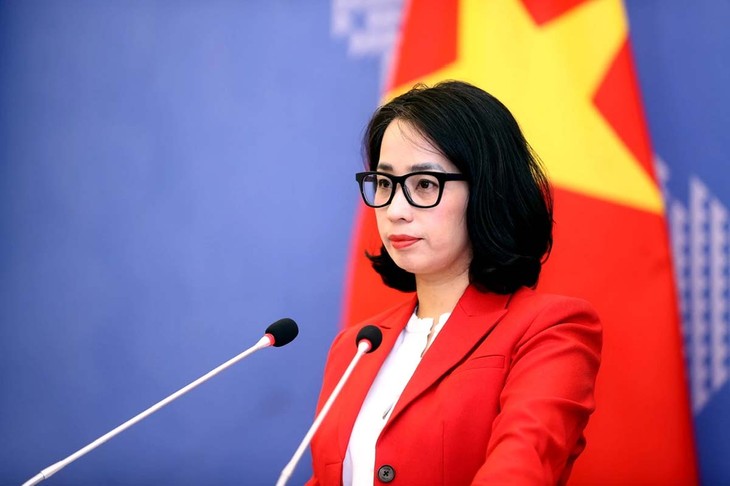(VOVWORLD) - Vietnam regrets the US’s decision to impose reciprocal tariffs on Vietnamese exports to its market, said Pham Thu Hang, spokesperson for the Vietnamese Ministry of Foreign Affairs, in response to a reporter’s question.
 Foreign Ministry spokesperson Pham Thu Hang. (Photo: MOFA) Foreign Ministry spokesperson Pham Thu Hang. (Photo: MOFA) |
“We believe the decision is not in line with the reality of mutually beneficial trade cooperation between the two countries,” Hang said. It fails to reflect the spirit of their Comprehensive Strategic Partnership for peace, stability, cooperation, and development, and if enforced, will negatively impact bilateral trade relations and the interests of businesses and people in both countries, she noted.
According to Hang, Vietnam has actively engaged in discussions with the US to address concerns, promote bilateral cooperation, and work toward fair, sustainable, and mutually beneficial trade.
In the wake of the US announcement of a 46% tariff on Vietnamese imports, Minister of Industry and Trade Nguyen Hong Dien, via a diplomatic note, asked the US to delay the tariff until talks can be held to seek a more reasonable arrangement.
Ta Hoang Linh, Director of the Foreign Market Development Department said the Ministry of Industry and Trade regrets that the new tariffs are set to take effect on Saturday.
Vietnam and the United States have complementary economies. Their export and foreign trade structures do not compete directly but complement each other according to the needs of each country, Linh said. Vietnam’s exports to the US compete with third-party goods, not US products, and give US consumers affordable, high-quality options.
The average most-favored-nation tariff rate Vietnam currently imposes on US imports is 9.4%, so a reciprocal tariff of 46% on goods imported from Vietnam is unfair, said Linh.
“According to the White House, the reciprocal tariffs on trade partners of the US aim to address the injustices of global trade, reshore manufacturing, strengthen national security, and boost economic growth, with the tariffs remaining in place until trade deficits and perceived unfair practices are resolved. So we believe there is room to negotiate a mutually beneficial outcome,” said Linh.